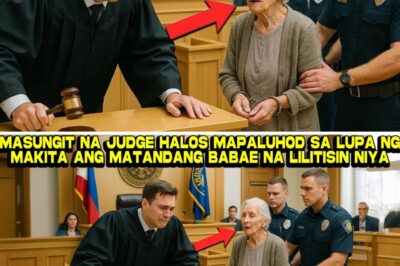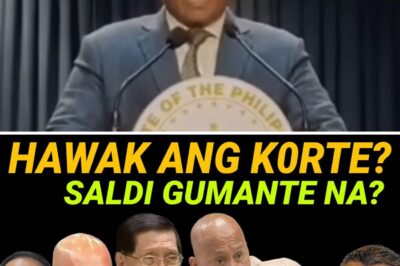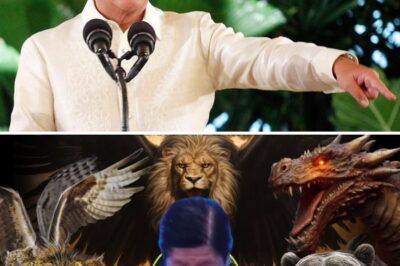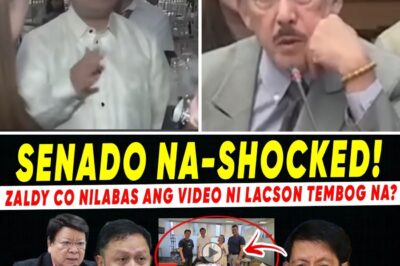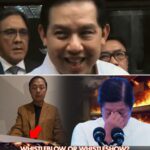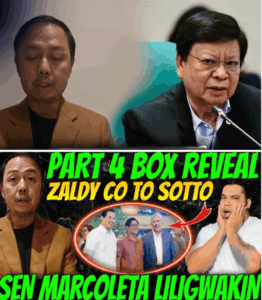
A political earthquake is threatening to shake the foundations of the Philippine Senate. In an explosive new report, bombshell allegations have surfaced claiming a concerted effort is underway to remove Senator Rodante Marcoleta from his elected office. This is not a standard political maneuver; critics are calling it a “political purge,” allegedly orchestrated by the highest levels of leadership and executed by the Commission on Elections (COMELEC).
The claims suggest that COMELEC, the independent body tasked with safeguarding the nation’s votes, is being weaponized as a political tool to silence one of the administration’s most vocal critics. At the center of this alleged conspiracy are two of the most powerful figures in the country: House Speaker Martin Romualdez and COMELEC Chairman George Garcia.
The “Thorn” in the Speaker’s Throat
According to the allegations, Senator Marcoleta has become a “thorn in the throat” of Speaker Romualdez. As a key figure in the Senate, Marcoleta’s critical stance and opposition to the administration’s agenda have reportedly caused significant “irritation” for the House leadership. The source of the report claims that this irritation has now boiled over into a full-blown campaign to find a loophole—any loophole—to oust him.
The alleged plan is to use COMELEC to “disqualify” or “remove” the senator, effectively nullifying the votes of millions of Filipinos. This move is seen by observers as a dangerous precedent, where political disagreements are no longer settled through debate but through the alleged weaponization of constitutional bodies. The objective, it is claimed, is to make an example of Marcoleta and clear a major obstacle to the administration’s agenda.
The “Selective” Watchdog
The accusations are not limited to Senator Marcoleta. He is allegedly just the latest target in a pattern of “selective investigation” by COMELEC Chairman George Garcia. Another senator, Chiz Escudero, is also in the crosshairs, facing a COMELEC probe for accepting campaign contributions from a government contractor. While this is a violation, critics are questioning the timing and the focus.
“Why these two senators?” a source from the original report asks. The answer, it is alleged, is political. Both Marcoleta and Escudero were instrumental in opposing the impeachment of Vice President Sara Duterte, a move that put them in direct conflict with Speaker Romualdez. Chairman Garcia is now being accused of being a “hatchet man” for the administration, “talking loudly” about the cases against these specific senators while ignoring far greater scandals.
Skeletons in COMELEC’s Closet
The allegations of bias against Garcia are fueled by his “deafening silence” on massive, unresolved issues within his own commission. Critics are furiously pointing to the anomalous “18 million overvotes” discovered during the last senatorial election. This mathematical impossibility, which suggests 18 million more votes were cast than voters, has never been adequately explained. To this day, Garcia has allegedly failed to provide a satisfactory answer, dismissing concerns and “erasing” files.
Furthermore, a “missing” 9 billion peso fund intended for the Barangay and SK elections has also been swept under the rug, according to the claims. The stark contrast is infuriating to critics: a “noisy” and “daldal” (talkative) Chairman Garcia when pursuing political enemies, but a silent and evasive one when questioned about multi-billion-peso anomalies and the very integrity of the election he is sworn to protect. This alleged hypocrisy is at the heart of the claim that COMELEC is now a compromised institution.
The “Box Reveal” and a Protected Dynasty
This alleged pattern of selective justice extends beyond COMELEC. The much-publicized “Box Reveal”—the ongoing investigation into the nationwide flood control scandal—is also being called a “cover-up.” While the probe has publicly named senators like Jinggoy Estrada and Joel Villanueva, along with former Congressman Zaldy Co, it has mysteriously steered clear of the most powerful political family.
The report highlights a recent inspection of flood control projects in Ilocos Norte, the home province and political stronghold of President Ferdinand Marcos Jr. These projects, valued at 9 billion pesos, were linked to contractors Pacifico and Sarah Descaya. The findings? The commission declared there were “no ghost projects,” only some “substandard” ones.
This result has been met with ridicule and scorn from critics, who see it as a blatant “whitewash.” They allege that while investigations in other regions, like Davao, are quick to link projects to the Duterte family, the Ilocos Norte probe was designed to protect President Marcos and his son, Representative Sandro Marcos, from any association with the scandal. “If this were Davao, it would be all over the news,” one critic fumed, “But since it’s Ilocos Norte, everyone is silent.”
The “President Who Knows Nothing”
This alleged protection of the president’s family connects to a broader, scathing accusation against President Marcos Jr. himself. He is described in the report as the “President Who Knows Nothing” (“ang presidenteng walang alam”). This narrative paints him as a “clueless” leader who, when every new scandal breaks, claims to have no knowledge of it.
Critics allege this is a strategy. They claim Marcos Jr. is the “head of corruption” as he is the one who ultimately signs off on the national budget. By feigning ignorance, he allegedly allows his cousin, Speaker Romualdez, to act as the de facto leader, pulling the strings and eliminating political rivals. This dynamic, it is claimed, has created a government where accountability stops at the top, and the President’s allies and family are “untouchable.”
This growing political war has a clear opposition. Vice President Sara Duterte has been quoted mocking the president’s “cluelessness.” Meanwhile, the Iglesia ni Cristo (INC) is reportedly planning a massive, 3-day “peace rally.” In response, the administration, through Justice Secretary Jesus Crispin Remulla, has issued stark warnings about “destabilizers” being arrested. This is being interpreted by many as a direct threat to intimidate the INC and suppress their right to peaceful assembly.
From a Senate seat to a public park, the message is the same. The allegations, taken together, paint a chilling picture: A government systematically targeting senators, weaponizing commissions, silencing dissent, and protecting its own. The alleged plot to remove Senator Marcoleta is not an isolated incident, but the opening salvo in a war for political control. With the integrity of COMELEC itself in question, critics are now fearfully asking: If they can remove a sitting senator, who will guard the vote in 2028?
News
Ang Hukom na Bato at Ang Inang Tinalikuran
Ang silid ng paglilitis ni Judge Ricardo Dela Fuente ay isang kahariang gawa sa malamig na marmol at madilim…
Pia Guanio’s Anguished Confession: Host Breaks Silence on Child’s Origins Amidst Eat Bulaga Turmoil
In the sprawling, chaotic wake of the “Eat Bulaga” schism that has ripped Philippine showbiz apart, a new and devastating…
Justice Inverted: Whistleblower Congressman Faces Sedition Charges as Massive Corruption Scandal Goes Unpunished
In a brazen and deeply troubling inversion of justice, the very individuals who have courageously stepped forward to expose one…
“It’s Finished”: The Chilling Prophecy of Daniel 7 and the Modern Claim That the “Last Government” Is Already Here
In a world gripped by uncertainty, where global conflicts, political turmoil, and economic instability feel like daily headlines, an ancient…
The Hall of Mirrors: As “Saldiko” Confession Ignites Budget War, New Accusations Allege Senate Staffer Exposed Lacson and Sotto’s Own “Top Secret” Insertions
In the brutal, high-stakes theater of Philippine politics, a single accusation can be a wildfire. Last week, the political landscape…
The Scapegoat Sings: Fugitive Congressman’s Confession Video Accuses President Marcos of Masterminding Billion-Peso Theft, Shaking Government to Its Core
In the murky, shark-infested waters of national politics, there is often an understanding: thieves may fall out, but the system…
End of content
No more pages to load

